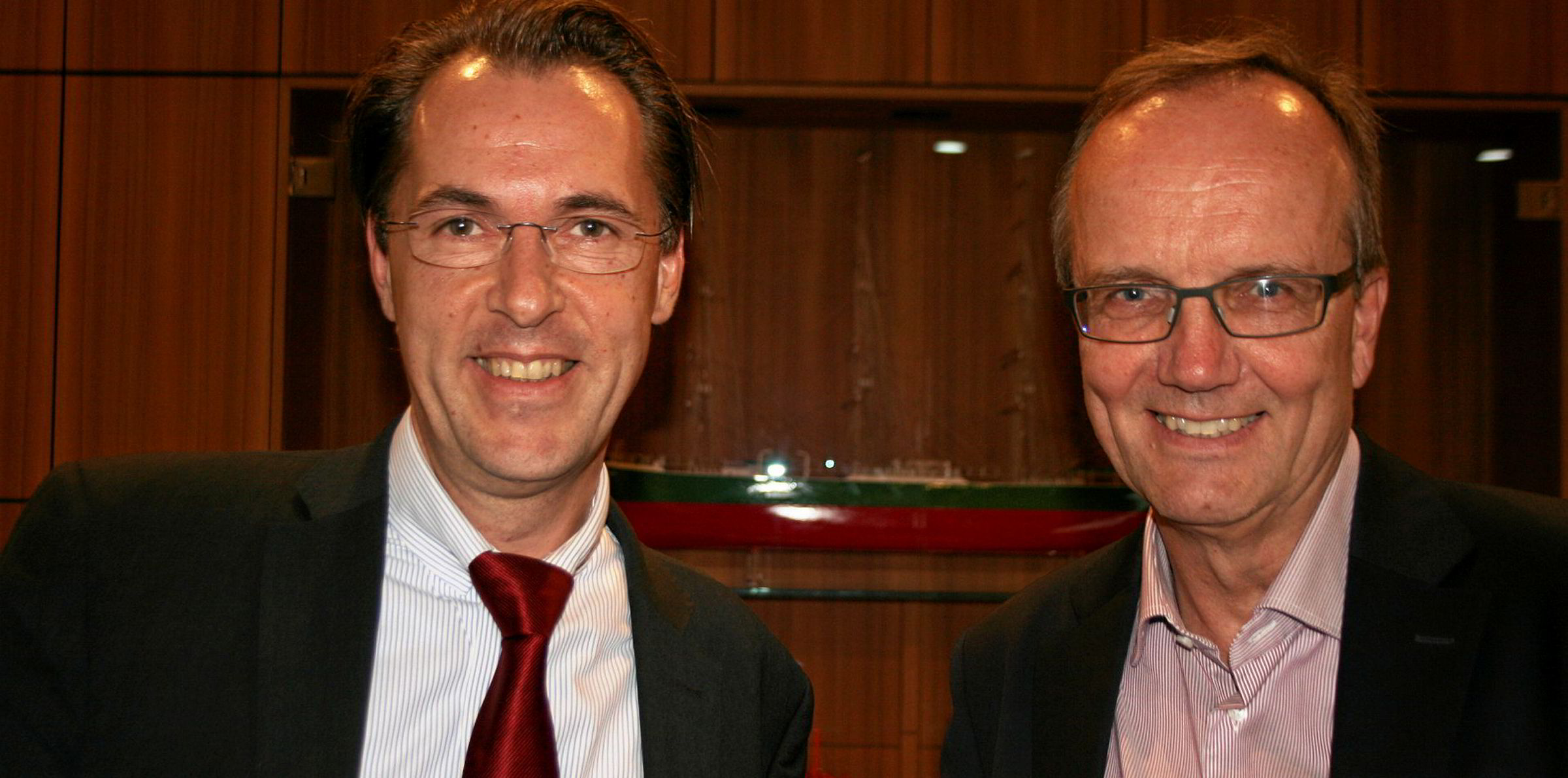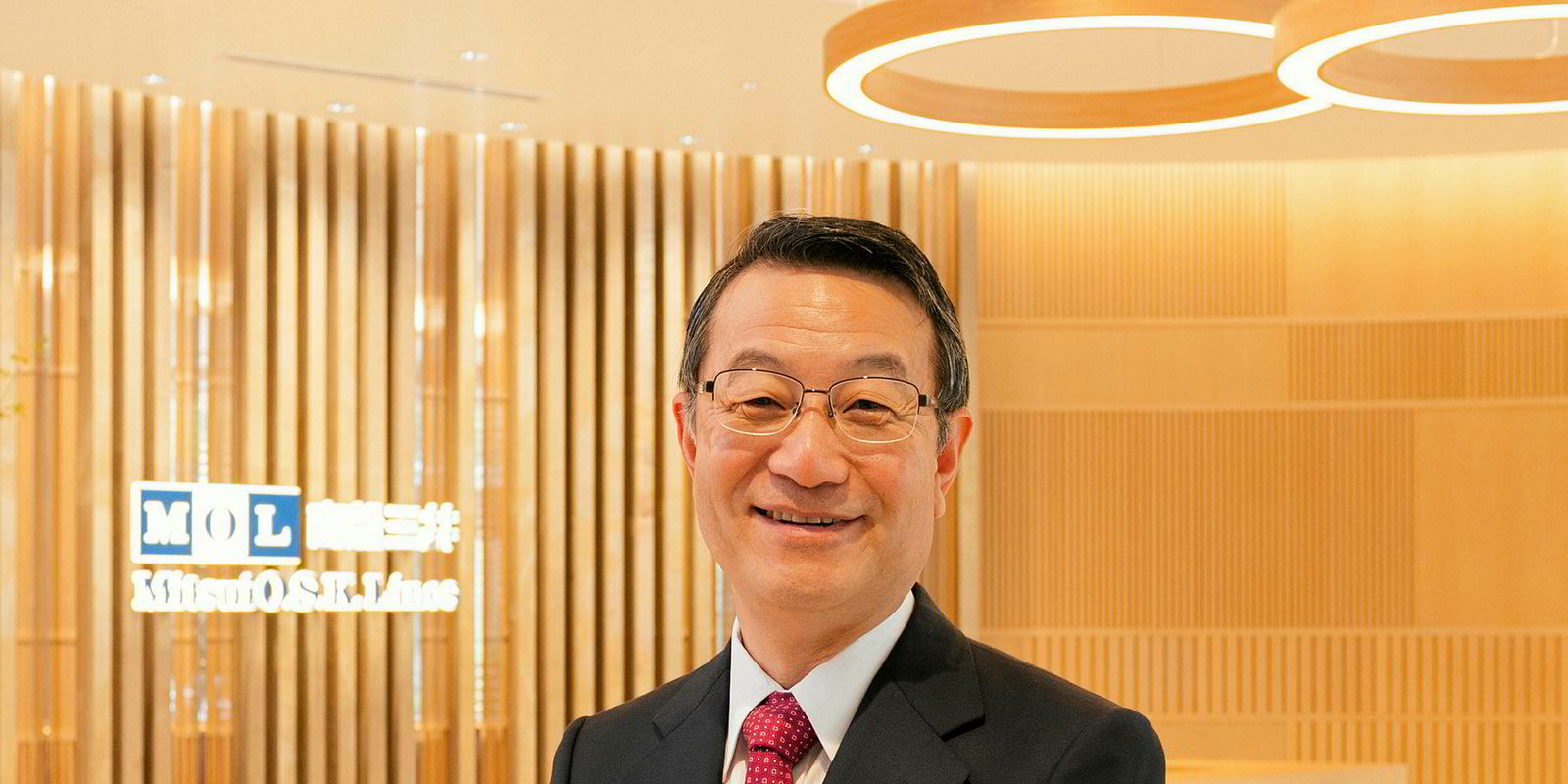Exhaust gas scrubbers are to be installed on a series of 10 feeder containerships on order for Bertram Rickmers and MTT Shipping.
Eight of the BengalMax newbuildings are destined for Rickmers’ privately owned Asian Spirit Steamship Co (ASSC).
Malaysian domestic boxship player MTT is taking two and has options for two more, which, if exercised, are also likely to feature scrubbers.
Hamburg-based MarLink Project Management originally ordered the 1,162-teu newbuildings at Fujian Mawei Shipbuilding in China, the first of which is scheduled for delivery in November. ASSC and MTT were the nominated owners.
‘Best solution’
MarLink joint managing director Christoph Sturm told TradeWinds that the two shipowners were persuaded to install scrubbers instead of burning more expensive low-sulphur fuel because it was the “best solution for the coming years”.
The newbuildings were ordered in 2015 when few people were considering scrubbers, and long before implementation of the IMO’s 2020 sulphur cap.
MarLink returned to the yard to negotiate installation of the scrubbers, which are costing around $2m per vessel.
Design of the vessels was amended but without any wastage, Sturm said. “We lost a few boxes and a bit of deadweight because scrubbers take up not only space but weight. In the end we found a good solution.”
Sturm said he is unaware of any similar ships in the same size category where scrubbers have been specified.
His impression is that owners are only now waking up to the fact that 2020 is “around the corner”. During a recent visit to Asia to talk with potential charterers of the feeder boxships, it seemed little was being done.
“They all realised there was a problem, but if you own 20, 30 or 50 ships, you are looking at a lot of money to be invested and a lot of time while these scrubbers are installed,” he said.
“There are a lot of open questions but I believe at some point you have to take a position. You have to allocate time and technical expertise to be sure this will work and give a decent return.”
Sturm said MarLink spoke to Rickmers and MTT at length and they “followed our logic”.
“Whether it is good we will only find out in five years’ time,” he added.
The alternative is to burn more expensive compliant fuel, but that leaves a lot of unknowns, including the future price difference with heavy fuel oil and whether it will be available in all ports, he said.
Amortisation of investment in scrubbers, depending on the trade, should be between one and three years, given the ability to use much cheaper fuel, Sturm estimates.
But the investment may not make sense for some ship types, such as standard handysize bulkers, which are typically already very economical.
“The further your ship goes and the more fuel you burn, the better the savings,” he said.
Meanwhile, MarLink is understood to be inviting third parties to quote on technical management of the eight Rickmers newbuildings. It seems probable that ASSC, the holding company for the single-purpose vessels, will handle commercial management, a task MarLink is assisting with.
MTT will be responsible for its own commercial and technical management.





